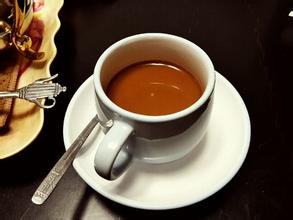History of Coffee Development in China when was the coffee shop popular?
Coffee Shop
Individual Chinese began to taste and drink coffee probably during the Tongzhi period. In the fifth year of Tongzhi (1866), Mrs. Gopiti, an American missionary in Shanghai, published a Book of making Foreign Rice, which was written for foreigners who came to China to eat western food and train Chinese cooks and cooks. In addition to translating coffee into "fattening", the book also teaches the methods of making and cooking coffee: "roasting and fattening in a fierce fire, shoveling frequently, so as not to scorch it black." Bake well, add a little cream while it is hot, cover it in a covered bottle, and roll it when you want to use it. Here we first talk about roasting and roasting coffee beans. When you want to boil a drink, you crush it and cook it immediately. Later, we will talk about how to add water to make coffee and so on. But it doesn't talk about adding sugar. There may be some omissions. Those who are trained by foreigners to cook western food and brew coffee are mostly employed Chinese, and they inevitably do not have a sip of coffee because of their work needs. When foreigners eat western food and drink coffee in China, they sometimes invite Chinese officials and their Chinese acquaintances to eat and drink. It can be seen that some Chinese people have tasted coffee during the Tongzhi period. The emergence of operational cafes in China was probably at the end of the Qing Dynasty. According to Xu Ke, a man at the end of the Qing Dynasty and the beginning of the Republic of China, "drinking coffee: there are coffee shops in Europe and the United States, just like the teahouses in China." It is also available in Tianjin and Shanghai, and it is also imitated by the Chinese. Concurrently sell candy to drink. Xu Ke's book takes a lot of notes from the Qing Dynasty, and it can be inferred that the things mentioned appeared at the end of the Qing Dynasty. However, this book was published a little later than the Zhonghua University Dictionary, so it is difficult to tell which book uses the word "coffee". However, what is printed in type is the China University Dictionary. It can be seen that coffee shops attached to cafes or hotels and guesthouses generally appeared in major cities in the Republic of China.
In China, people like drinking coffee more and more. The "coffee culture" that follows is full of every moment of life. People are tasting coffee at home, in the office, or on various social occasions: it is gradually associated with fashion and modern life. Coffee houses everywhere have become good places for people to talk, listen to music and rest, and coffee has gradually developed into a culture. Whether it is freshly ground coffee beans or freshly brewed hot coffee, it exudes a rich aroma and makes people intoxicated. There are many ways to savor this intoxication: espresso, cappuccino, Latay, flavored coffee; they offer a variety of options for people who regularly patronize coffee shops in Beijing, Shangjiu and other big cities in China. Chinese people also gradually like to make their own coffee. Using roasted coffee beans, filter pots and filter paper to make a cup of fresh coffee also has a different taste.
As coffee is widely known as a drink with a long history, coffee is being accepted by more and more Chinese people. Some data show that China's coffee consumption is increasing year by year, and is expected to become an important coffee consumer in the world. Today, Yunnan coffee produced in China's own land, with its noble quality and low price, will promote this trend, guide this fashion, become the Chinese people's own coffee brand, and have China's own unique coffee culture.

Important Notice :
前街咖啡 FrontStreet Coffee has moved to new addredd:
FrontStreet Coffee Address: 315,Donghua East Road,GuangZhou
Tel:020 38364473
- Prev

What are the conditions for opening a coffee shop? What evidence do you need?
At present, the second and third tier cities are mainly coffee shops with popular fashion. The French-style Café de la Cité is an example. It is understood that Xidi Island takes freedom, equality and no boundaries in the world as coffee culture concept, and is committed to promoting and popularizing coffee consumption fashion culture in China. At present, nearly 200 franchised stores have been developed in China. Coffee shops such as Starbucks
- Next

Which major countries in America mainly produce coffee
Which major countries in the Americas mainly produce coffee began in Central America in the 18th century, and this important economic product originated in Costa Rica around 1840. Since Central America became independent from Spain in 1821, there has been a lot of war. Because Costa Rica was far away from Guatemala City, the capital of the Spanish colony at that time, it was not affected by the civil war, but Guatemala.
Related
- What documents do you need to go through to open a coffee shop? coffee shop coffee shop certificate processing process
- How to purchase Coffee beans in small Cafe how to choose a suitable supplier for domestic Coffee supply Company
- How to drink Starbucks Fragrance White Coffee? how to make Australian White Coffee? what Italian coffee beans are recommended?
- The Story of Flora Coffee: the name of Flora Coffee Bean and the implication of the Flowers on Florna Coffee
- How much does a cup of coffee cost? How much is the profit of a cup of coffee? What is the profit of the coffee shop in a year?
- Yunnan small Coffee, known as "fragrant Coffee", introduces the characteristics of Alpine Arabica Coffee producing areas in Yunnan, China
- 2023 latest Starbucks full menu price list how much is a cup of Starbucks coffee what is better to drink the most popular hot and cold drinks recommended
- Starbucks different kinds of Coffee Price list Starbucks menu 2023 Top Ten Best drinks in Starbucks
- Starbucks Spring praise Comprehensive matching Coffee Bean theme Story Packaging implication and taste description
- The cost of a cup of coffee latte American coffee cost price and selling price

